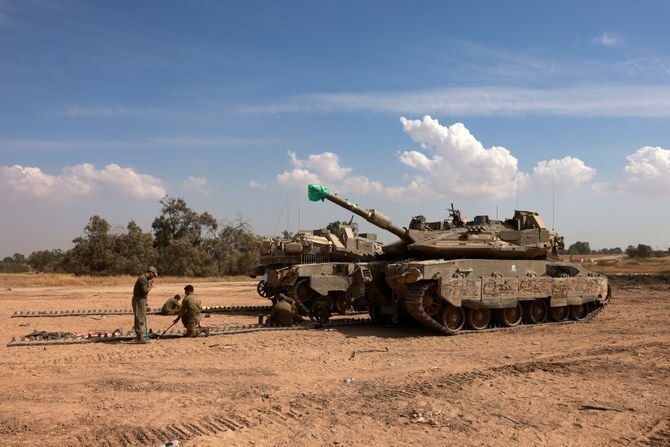LONDON: Lawyers in the UK have filed claims of Israeli atrocities to the high court in London as they seek an order prohibiting British arms exports to Israel, The Guardian reported.
The evidence includes claims of Palestinian civilians being tortured, left untreated in the hospital and being given no escape from bombardment.
It comprises statements from Palestinian and Western medical doctors who worked in Gaza, as well as ambulance drivers and aid workers.
In total, the group of lawyers filed 14 witness statements spanning more than 100 pages.
In order for the ban to be granted, they must prove that the UK government has acted irrationally in refusing to end arms sales to Israel.
Part of the case will center around repeated government claims that the weapons sales would not result in violations of international law.
While the previous Conservative government was firm in continuing weapons exports to Israel, the new Labour government has said that the policy is under review.
The lawyers bringing the case are representing a coalition of nongovernmental organizations that includes Amnesty International, Oxfam, Human Rights Watch and Al-Haq.
All witnesses have been identified by the high court, but The Guardian only named two out of safety fears concerning the Gazan witnesses.
One, Dr. Ben Thompson, a Canadian kidney specialist, told the newspaper about the atrocities he had witnessed while working in Gaza.
He treated one patient who had been forced to stand for two days, and a 60-year-old man who had been stripped naked, and whose wrists were “worn down to the bone” after being bound and dragged across the floor.
Thompson said: “Every part of the healthcare system has been targeted and destroyed and is now completely incapable of providing care.
“So many people are dying from issues that are completely treatable.”
Three children under his care died due to a lack of appropriate medicine, he added.
In the Rafah tent city in March, civilians were forced to ration water to three liters a day per person, and there was one toilet for every 800 people, Thompson said.
On several occasions, he was forced to reset bones on patients who had no pain medication.
In one case at a severely overcrowded hospital, a man Thompson was caring for “died on the floor in a pool of his own blood and brain matter.”
Dr. Khaled Dawas, the second witness named by The Guardian, works as a consultant surgeon at University College Hospital in London.
He traveled to Gaza twice since the outbreak of violence last year to perform surgery.
Conditions in hospitals on both his trips “were what he imagined medieval medicine must have been like,” Dawas said.
Many of his patients were victims of Israeli sniper fire, he added.
“I understand that Israel justifies its attacks on hospitals by reference to its claim that the hospitals are overrun by militants, but in my four weeks in Al-Aqsa Hospital I personally did not see a single one,” Dawas said.
During his work in the enclave, he encountered many patients who had suffered wounds after being beaten in Israeli detention camps.
On Dawas’ second visit, he “found the morale of staff had deteriorated” and by April “there was a sense of fatalism that this would never end,” The Guardian reported.
One UK-based witness not named by The Guardian said that he and a group of doctors were bombed in a “safe zone” on Jan. 18 this year.
“The episode acted as an impetus for NGOs to stop sending humanitarian workers,” he added.
British diplomats in Cairo provided assurances that the bombing would be escalated to the highest level of the UK government.
But the witness said that no government official has contacted the medical team since the attack.




























